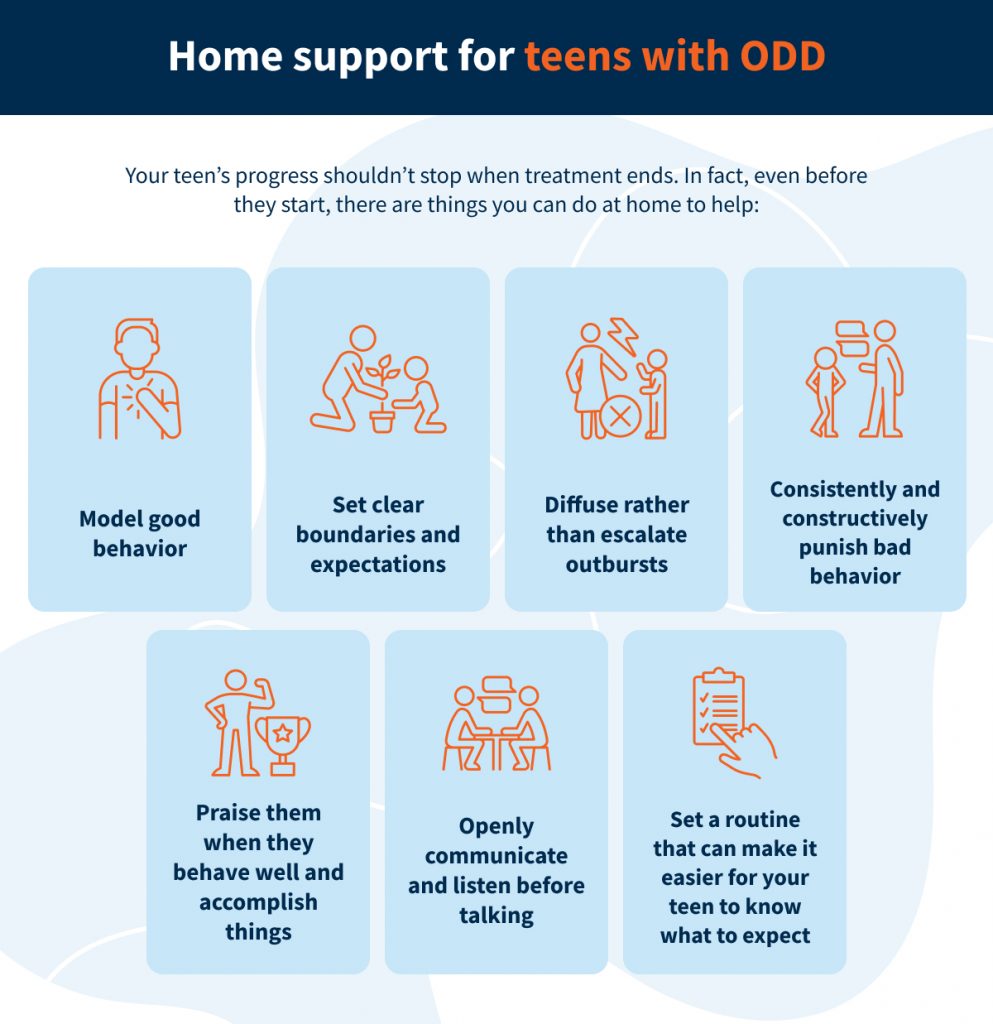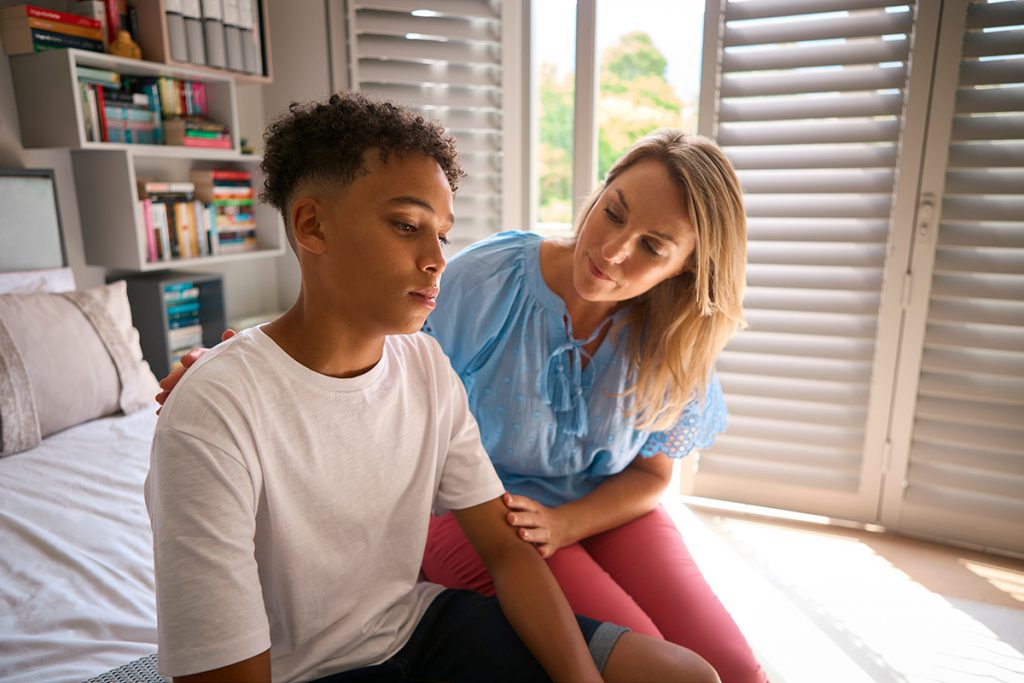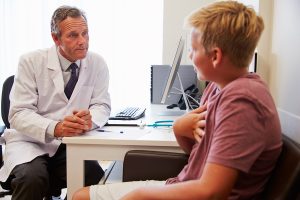When your son or daughter is diagnosed with oppositional defiant disorder, they’ll likely be recommended for treatment. Treatment for ODD involves a lot of family therapy and parental guidance, but individual therapy, social skills practice, and even medication may also be involved.
What does a treatment plan for oppositional defiant disorder look like?
Most treatment plans heavily focus on parent and family counseling. Since ODD is a behavioral disorder, reinforcing positive behaviors and setting clear expectations can go a long way.
Parent-Management Training
Parent-management training (PMT) teaches parents how to approach their teen’s behaviors in more effective ways. Teens with ODD are, by nature, defiant. Punishing them for something they did (negative reinforcement) has not been proven to be an effective strategy. Instead, parent-management training focuses on supportive supervision and discipline rather than harsh punishments. It also helps parents hone in on being more immediate when responding to a negative behavior.
Family Therapy
Raising your child with untreated ODD takes a toll on your relationships—both between parents and with other siblings. Family counseling sessions help rebuild these connections. You’ll work with your teen as a parental unit under the guidance of a licensed professional to discuss your family dynamics and the best ways to resolve conflict.
Talk and Experiential Therapy
The very nature of ODD can make it hard for teens to recognize that just because something is going against what they think doesn’t mean that it’s personally attacking them. Talk therapies, like cognitive-behavioral therapy (CBT), can help them work on their problem-solving skills. They can start recognizing that they are part of a bigger world, and they’ll need to follow rules and respect others. On the other hand, experiential therapies use hands-on activities such as art, music, exercise, or equine therapy to help teens express themselves and develop coping skills.
Social Skills
Practicing the skills they learn in therapy with other teens, teachers, and authority figures can help reinforce positive behaviors. During treatment, they might engage in group therapy led by professional therapists. After treatment, the clinical team may work with school counselors to help them continue to practice in real-world situations.
Medication
For teens with co-occurring mental health conditions, medication can help control symptoms so that parent management training and cognitive therapy are more effective. ADHD, mood disorders (like depression), and anxiety all commonly co-occur with ODD. By managing these conditions with medication, treatment can more effectively target the issues caused by ODD.
What to expect when your teen enters treatment for ODD
Before entering therapy, a provider will assess your teen’s behaviors and challenges to create an individualized treatment plan.
Assessment and diagnosis
A comprehensive assessment is the first step in creating an effective treatment plan for ODD. This will include evaluating your teen’s medical history, family history, and any potential underlying issues that may contribute to their behavior.
Individualized treatment
Based on the assessment, a team of professionals will create a personalized treatment plan tailored to your teen’s specific needs. This may include a combination of individual and family therapies, medication management, and education for both the teen and their family.
Ongoing support
ODD treatment doesn’t end after therapy sessions. It’s crucial to have ongoing support to ensure your teen continues to improve their behavior and maintain progress. This may include follow-up appointments, support groups, contact with your teen’s school, and aftercare programs. Residential treatment can often be the most effective option for teens with unmanaged ODD. It provides a structured and safe environment for them to learn new coping skills and practice positive behaviors.

Frequently asked questions
Does ODD get better with age?
For most children and adolescents, ODD gets better. The likelihood of improvement also goes up with treatment. Some people with ODD do develop another behavioral disorder, like conduct disorder and/or mental health condition as they become adults. Untreated ODD and conduct disorder are both risk factors for personality disorders.
What is the best treatment for ODD?
Parent-management training and family support are the two leading interventions for ODD. Cognitive therapy is also effective at teaching problem-solving skills. Medication may be effective for some teens with co-occurring conditions.
What are the therapeutic activities for ODD?
Family structure, cognitive reframing, and positive reinforcement are some of the main skills taught to parents and teens during ODD treatment. These can be taught during parent-management training and cognitive-behavioral therapy.
What medication is best for ODD?
Medication alone may not be the best treatment for ODD. Teens with co-occurring conditions, like anxiety, ADHD, and mood disorders, though, may benefit from medication. When symptoms of co-occurring conditions are better managed, the ODD can be addressed more effectively.
Call Family First to get help
If your teen has ODD and it’s gone unmanaged, it’s time to seek professional help. Our programs in South Florida offer individualized oppositional defiant disorder treatment for teens. We understand the complexities of ODD and work with families to create supportive and effective treatment plans for their teens. Call 888.904.5947 or complete our online form, and get the support your family needs to move forward.






